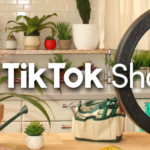Loot box researcher Leon Xiao has exposed the widespread violation of UK and EU regulations in the realm of loot box advertising on social media. Xiao’s latest findings reveal a concerning trend wherein ads for games consistently fall short of meeting the stipulated disclosure requirements regarding the presence of loot boxes or any in-game purchases.
For this study, Xiao revisited a list of games known to feature loot boxes, compiling from a previous investigation. He meticulously sifted through Meta’s ad library, encompassing Facebook, Instagram, and Messenger platforms, uncovering a total of 188 ads representing 63 different games with loot boxes.
A meager 11% of these ads correctly indicated the existence of in-game purchases, while a mere 7% acknowledged the inclusion of loot boxes. Adding to the complexity, these disclosures were inconsistent across various games, with only Elder Scrolls Online consistently disclosing both in-game purchases and loot boxes in every ad.
Taking the investigation to TikTok, Xiao found a parallel scenario. Scrutinizing TikTok’s ad library, he identified the 100 ads with the highest impressions related to games featuring loot boxes. Astonishingly, a mere 7% of these ads disclosed the presence of loot boxes.
In a similar vein, out of the 130 ads related to games with in-game purchases, only nine (6.7%) were correctly labeled. Notably, every appropriately labeled ad on TikTok belonged to Electronic Arts, while major titles from gaming giants like Activision Blizzard, Sony, Take-Two Interactive, Warner Bros. Games, and Ubisoft consistently failed to make such vital disclosures.
Despite acknowledging Electronic Arts’ compliance, Xiao refrained from hailing them as the paragon of proper disclosure. He pointed out that in numerous cases, the disclosures were brief, displayed in minuscule text that required pausing and zooming in, rendering them practically unreadable on these platforms.
Highlighting a case study, Xiao singled out an Electronic Arts ad for Apex Legends. While commending its use of the familiar PEGI logo and content descriptor box, he highlighted its small size, placement in a corner susceptible to being blocked by UI elements, and low resolution that rendered the content descriptors unreadable.
Xiao’s findings raise concerns about the effectiveness of mandatory disclosures, prompting questions about their compliance with regulatory requirements. The UK’s Committee of Advertising Practice laid down guidelines in 2021, emphasizing the need for video game ads to disclose in-game purchases and loot boxes. Similarly, the European Commission asserts that the EU Unfair Commercial Practices Directive mandates the disclosure of randomized paid content, such as loot boxes. As the gaming industry navigates this regulatory landscape, the effectiveness of these disclosures remains a crucial point of contention.







Comments
Loading…